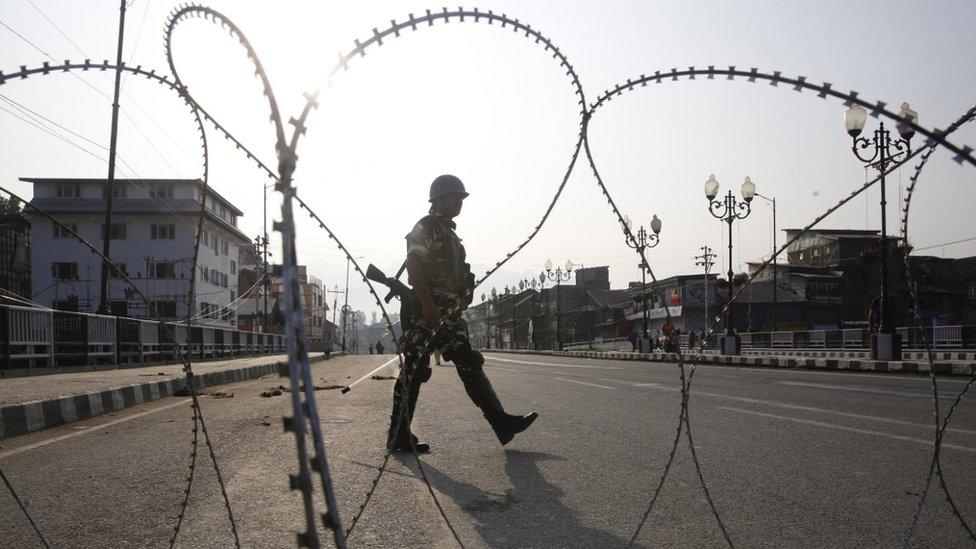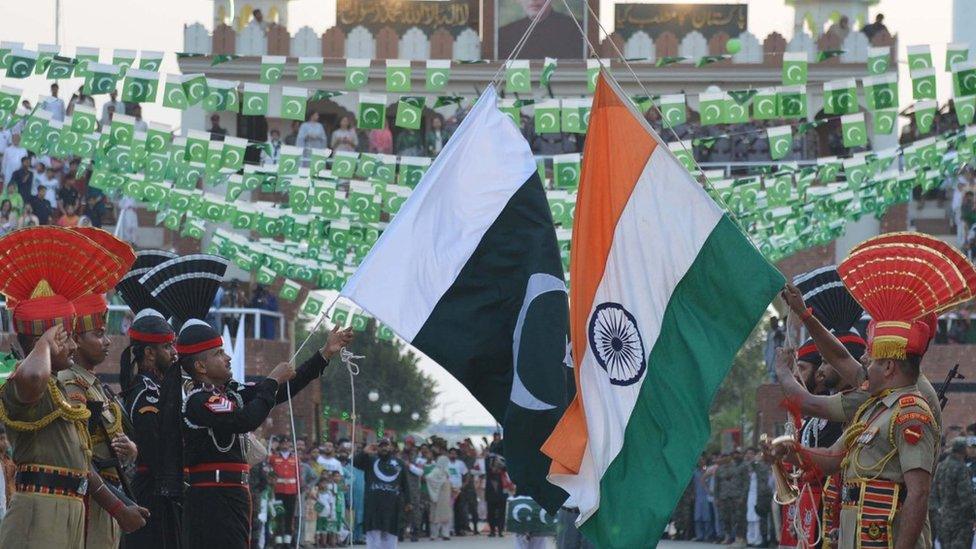Kashmir dispute: Hundreds detained as anger grows
- Published
The BBC reports from inside Indian-administered Kashmir
At least 300 people have been detained in Indian-administered Kashmir since the state was stripped of its special status, officials have said.
Politicians, activists, business leaders and professors were reportedly among those being held in makeshift detention centres.
The region has been in lockdown since Sunday night, with mobile, landline and internet networks cut off.
Prime Minister Narendra Modi said he would address the nation on Thursday.
Local police said the detentions were made in an effort to quell protests, Reuters news agency reported. "There is a lot of anger among the people," a police official said.
BBC reporters saw some protesters throwing stones at security forces, and spoke to residents who said they feared that the violence could increase.
"People of Kashmir are very angry," said Iqbal, a local travel agent. "They are like a volcano that will eventually erupt and India is unaware of the consequences," he said.
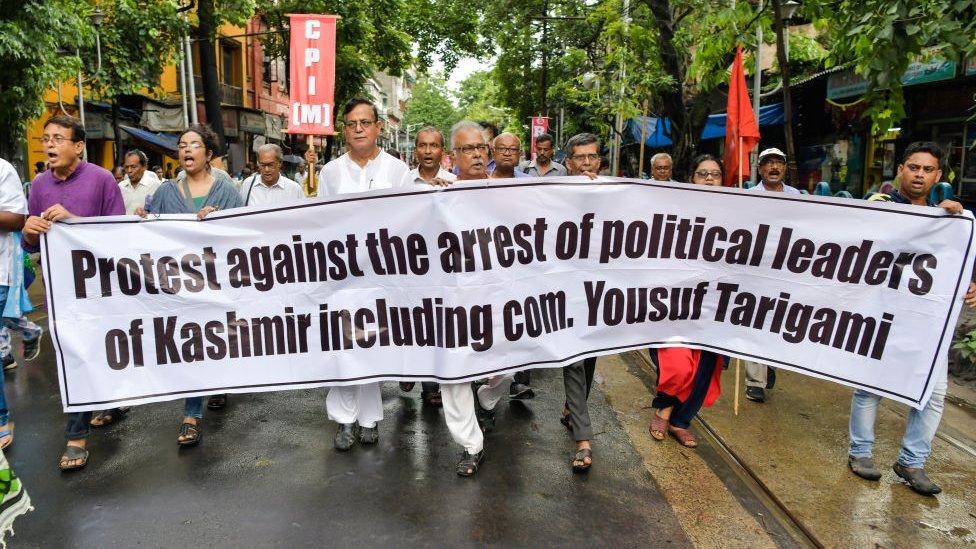
Among those detained were Mehbooba Mufti and Omar Abdullah, two former chief ministers of Jammu and Kashmir - as the Indian state is known.
Although both were able to circumvent internet restrictions and tweet soon after the announcement was made, they have not been heard from since.
Article 370 - the constitutional provision guaranteeing special status - gave the state of Jammu and Kashmir special dispensation to make its own laws on everything apart from matters of foreign affairs, defence and communications.
Mr Modi's speech, which will be broadcast via state radio at 20:00 local time (14:30 GMT), is expected to reach the Kashmiri people. But some critics say that his address has likely come too late for them.
There is anger among Kashmiris that they have been "muzzled" since the government announced it would revoke the region's special status.
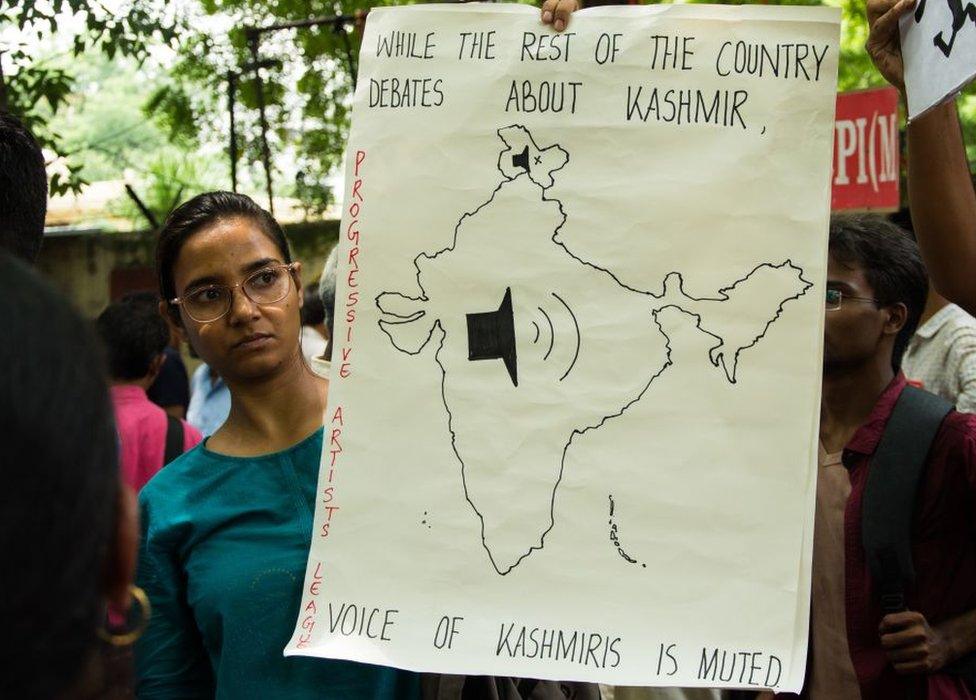
There has been criticism over the muzzling of Kashmiri voices
Those who have been able to speak out have complained about the lack of discussion or consultation before the decision was taken.
"There had been no discussion about this move. No-one had expected it. We were shocked when we heard about it. Why would you take such a step in secret? Come out and tell us it's a good move" one resident, Abdul Khali Najar, told the BBC on Tuesday.
India's decision revoking Article 370 drew a swift reaction from Pakistan's prime minister, Imran Khan who said the move was in breach of international law. Mr Khan also announced a downgrading of ties with India.
The Himalayan region is claimed in its entirety by both India and Pakistan, but each country controls only part of it.
The United Nations called the latest restrictions imposed on the region "deeply concerning".
Why is Kashmir controversial?
Kashmir is a Himalayan region that both India and Pakistan say is fully theirs. The area was once a princely state called Jammu and Kashmir, but it joined India in 1947 when the sub-continent was divided up at the end of British rule.
India and Pakistan subsequently went to war over it and each came to control different parts of the territory with a ceasefire line agreed. There has been violence in the Indian-administered side for 30 years due to a separatist insurgency against Indian rule.
How has Kashmir's status changed?
For many people in Indian-administered Kashmir, Article 370 was the main justification for being a part of India. By revoking it, the BJP-led government has significantly changed Delhi's relationship with the region.
The article allowed the Indian state of Jammu and Kashmir a certain amount of autonomy - its own constitution, a separate flag and the freedom to make laws, though foreign affairs, defence and communications remained with the central government.
Under the article, Jammu and Kashmir could make its own rules relating to permanent residency, ownership of property and fundamental rights. It could also bar Indians from outside the state from purchasing property or settling there.
The government said Article 370 needed to be scrapped to put the state on the same footing as the rest of India. But many Kashmiris believe that the BJP ultimately wants to change the demographic character of the Muslim-majority region by allowing non-Kashmiris to buy land there.
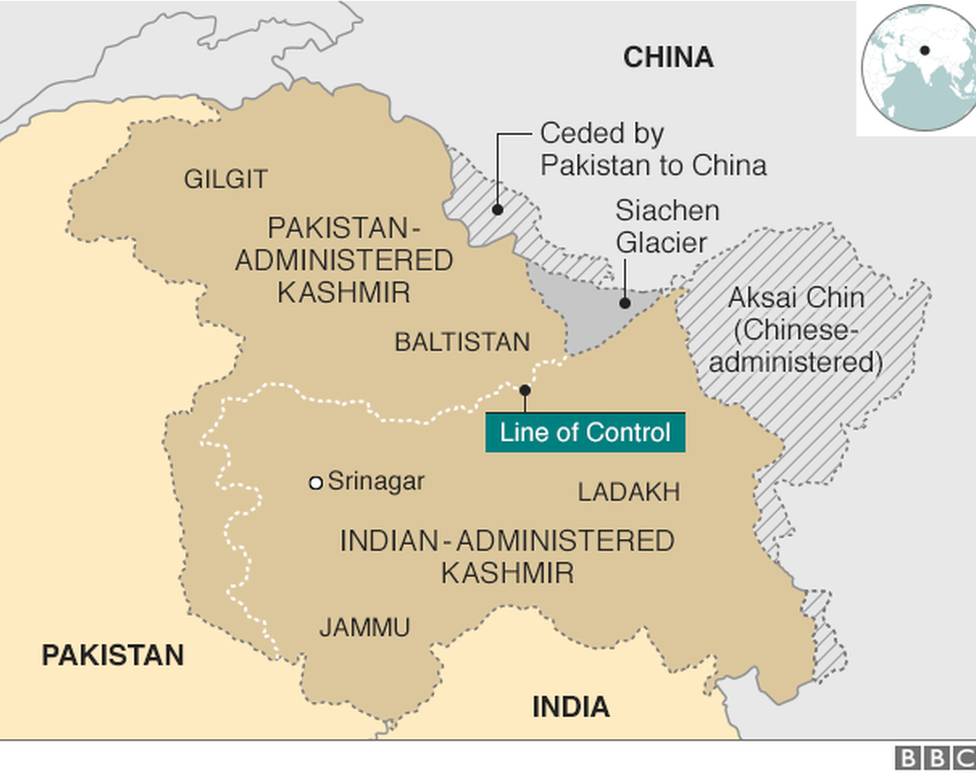

- Published8 August 2019
